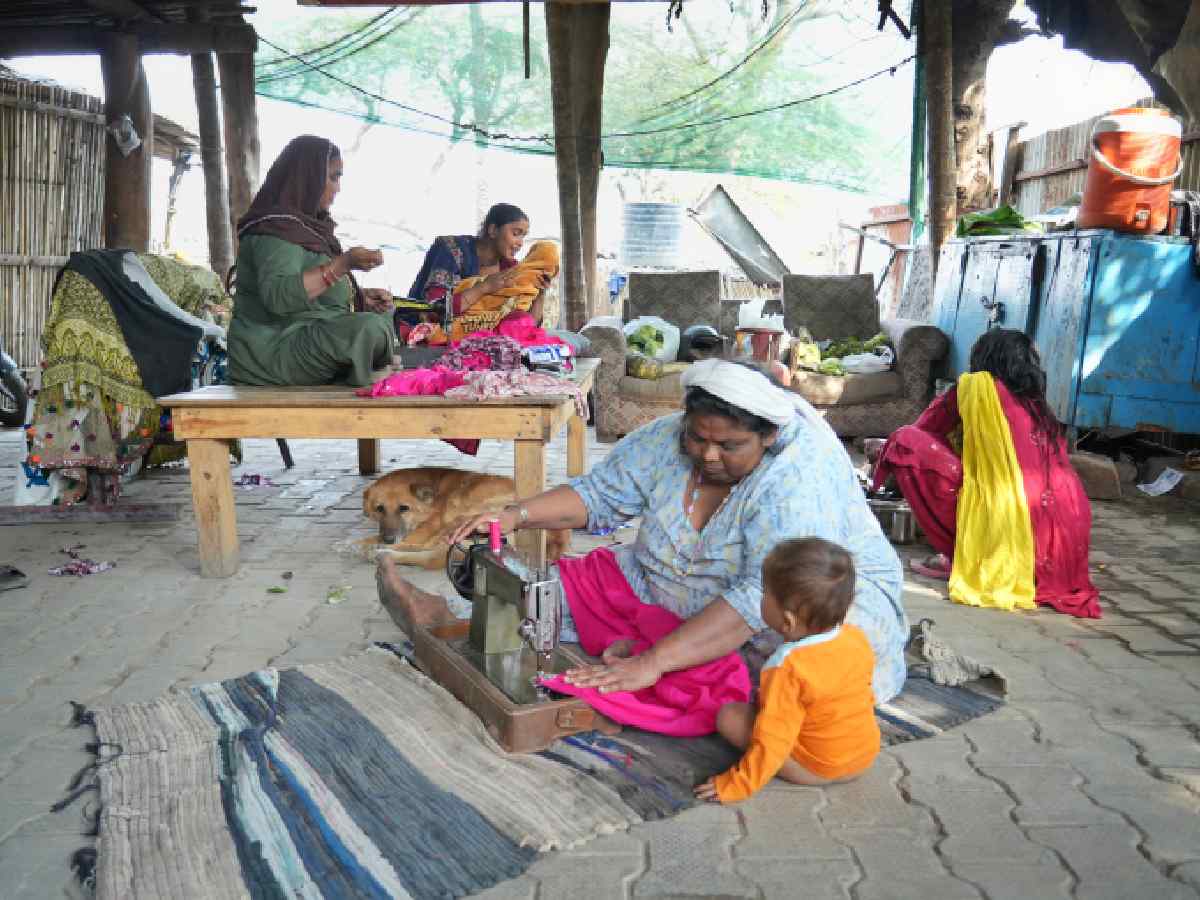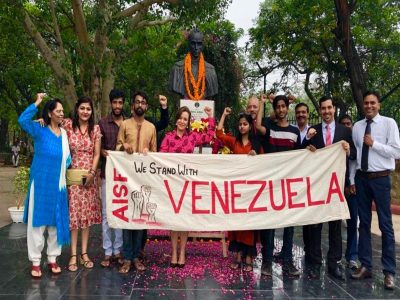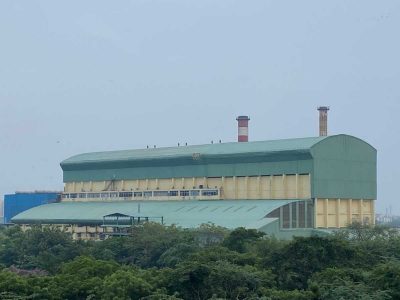Pakistani Hindu refugees eviction: Cramped lanes, unpaved and riddled with puddles, are the first sight upon entering the slum cluster that houses over 200 families of Pakistani Hindu refugees. Huddled in a densely packed settlement along the Yamuna River banks, they remain as despondent as when they first arrived in the national capital a decade ago.
WATCH:
The only progress they’ve seen over the years is that they now have Aadhaar cards and Voter IDs. However, they still need to visit the authorities repeatedly to complete citizenship formalities. Meanwhile, an even greater worry looms: if they are evicted, where will they go next?
Also read: Delhi girl with rare bone disorder walks after complex surgery
Looming eviction
On February 6, the National Green Tribunal (NGT) pulled up the Delhi Development Authority (DDA) for failing to implement its 2019 order to remove encroachments from the Yamuna floodplain. Despite directives from the NGT, Delhi High Court, and Supreme Court, the tribunal noted that encroachments along the river’s stretch in Delhi remain uncleared.
Referring to its October 15, 2024, order, the tribunal had sought details of encroachments along the 22-km Yamuna floodplain in Delhi, including Majnu Ka Tila. Initially, refugee encampments were excluded from eviction. However, in its latest order, the bench observed that compliance had not been timely, raising fears among the refugees that they could now be forced to leave.
The uncertainty is unbearable. Already displaced once, they now face homelessness yet again—this time in a foreign land.
Unfulfilled promises
After the Lok Sabha elections 2024, when many of these refugees were granted Indian citizenship under the Citizenship (Amendment) Act, 2019, they hoped for a fresh start. But life remains unchanged. Their decade-long encroachment of the Yamuna’s banks is now another challenge in their long struggle for survival.
According to Dharamveer, a community leader, the refugees had petitioned the Prime Minister’s Office for agricultural land on lease. “We are all farmers. Even in Pakistan, we used to farm. But after coming to India and settling in Delhi, we found ourselves jobless. A couple of years ago, we requested the Prime Minister and the state government to grant us agricultural land on lease so we could earn our livelihood with dignity. Nothing has happened yet, but we remain hopeful,” he said.
The community is even willing to relocate if it means securing a sustainable livelihood. “We wouldn’t mind moving to Rajasthan, Madhya Pradesh, or anywhere else, as long as we can farm. At least then we’d be doing something we know,” he added.
‘We were just a vote bank’
Many refugees voted for the Bharatiya Janata Party (BJP) in the hope that their situation would improve. However, residents say that despite the Assembly Elections and a change in government, their living conditions remain the same.
Puja, originally from another refugee colony in Faridabad, expressed frustration over persistent discrimination. “Wherever we go, we are treated as outsiders. People believe we are foreigners trampling on their rights. I have faced this firsthand. The government, too, sees us only as a vote bank. I have lived in Faridabad since 2004, and I have not received any support.
My sons and I survive on what we earn ourselves,” she said.
For most, daily survival is a struggle. Lacking steady employment, many rely on makeshift stalls selling mobile covers or daily essentials. “On a good day, we earn around Rs 300, but some days we make nothing,” said Devrani, whose 16-year-old son sells mobile covers on the pavement.
Lack of infrastructure
With poverty all around, hygiene takes a backseat.
The settlement has only two bathroom facilities, each with eight stalls. However, due to neglect, they are barely usable. “Nobody can use the public bathrooms here. Some families have built toilets inside their homes, but for those who haven’t, the only options are the broken stalls or the Yamuna banks,” said Devrani.
Following the elections, the refugees had celebrated their participation in India’s democratic process. But within weeks, hope gave way to despair. “We have been pleading with the government, but nothing has come of it. We barely earn enough to survive, let alone educate our children. It’s only because of an NGO’s gurukul that my daughter can study. Without it, she wouldn’t have a way out of this life,” said Nanki Solanki, a mother of three. Her two sons run separate stalls selling mobile covers.
Struggles with rising costs
Another challenge is the lack of a government electricity connection. Sukhnand, another community leader, explained how this makes life harder. “Since we don’t have a government electricity line, we rely on private providers. The issue is that we don’t get the free 200 units, and the cost per unit has risen to Rs 10. Some households end up paying as much as Rs 16,000 a month—more than what many here earn,” he said.
To cope, some families use emergency lights. But as children grow older, the need for electricity becomes urgent. “We can withstand the heat and darkness, but our children need electricity to study. Education is their only way out,” said Nanki.
Also read: Delhi bars flout alcohol rules, underage drinking persists despite strict guidelines
‘We have nowhere to go’
Life as a refugee has been a relentless struggle, and the government’s lack of understanding, many say, only worsens their plight. “Moving to another city is hard enough, but we have moved countries. And still, the government doesn’t understand what that means,” Nanki added.
Now, with the DDA allegedly making regular rounds in the locality, the anxiety is mounting. “Some men come and tell us to leave, warning that an eviction drive is imminent. If I had a choice, I would leave—but where would I go?” said Devrani.
With no certainty of a stable future, the refugees continue to live on the edge—hopeful yet helpless.





